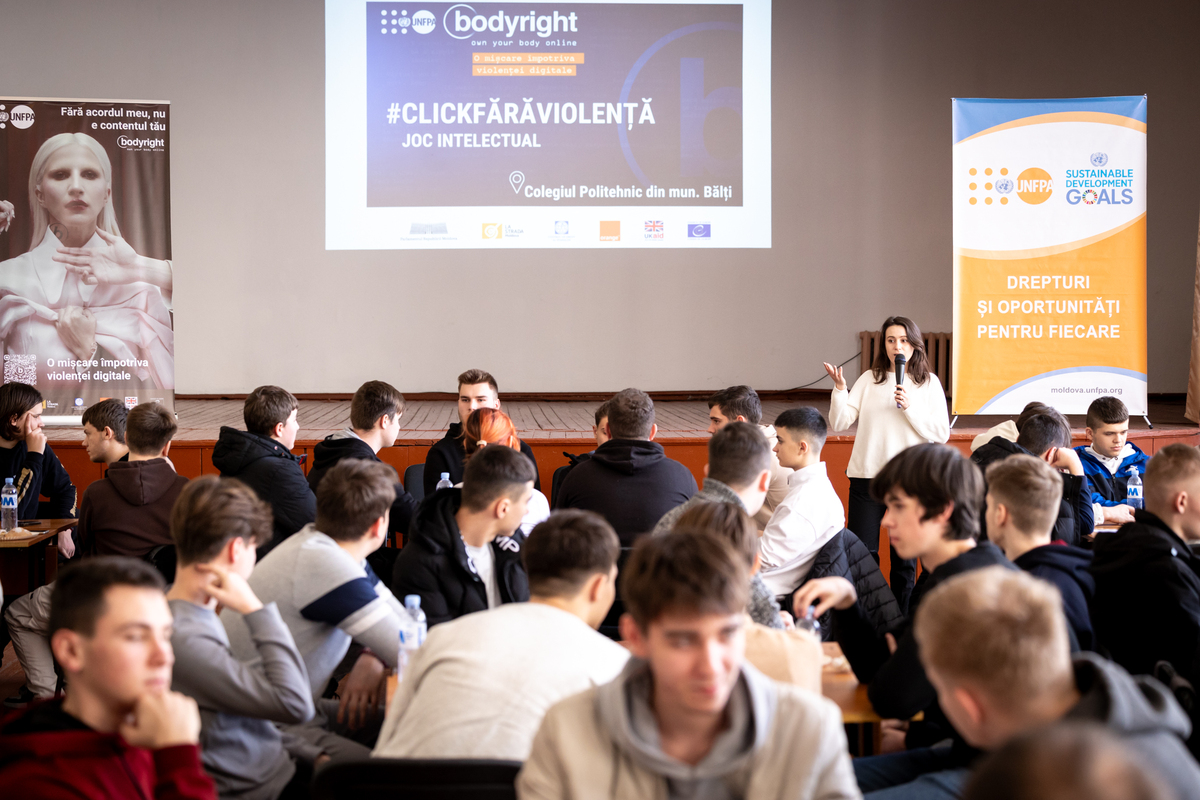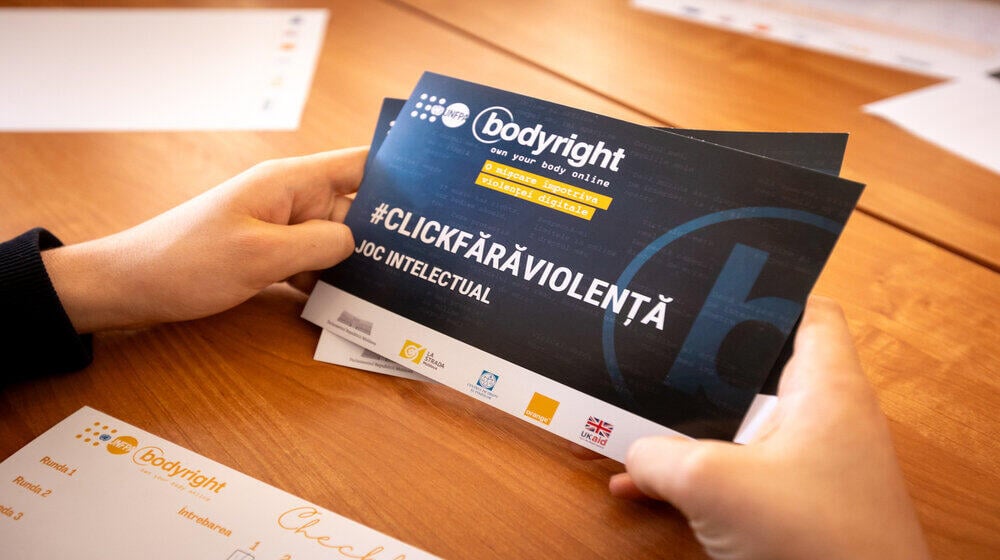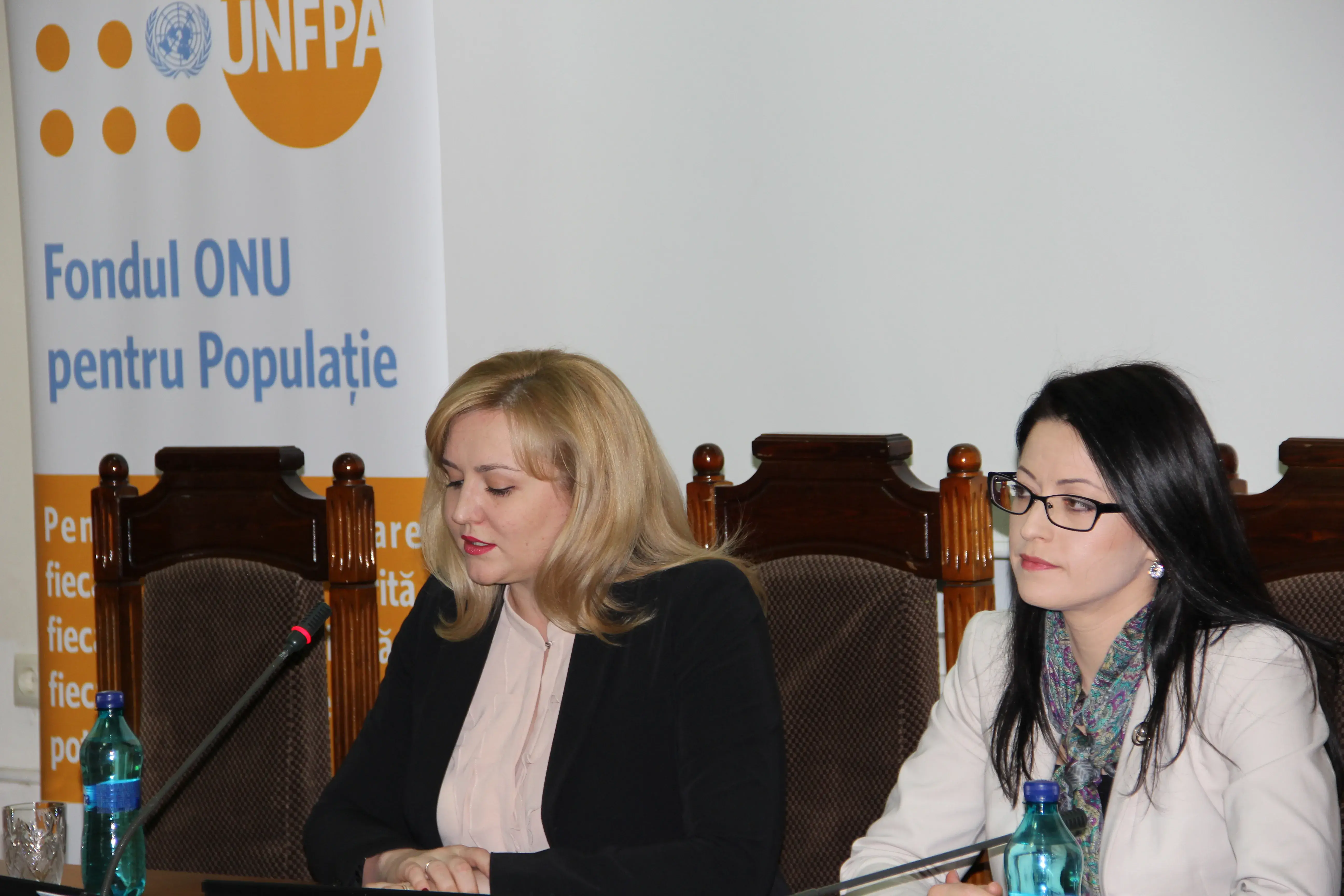Adolescents and young people in the Republic of Moldova will have the opportunity to learn how to better protect themselves from risks in the online environment. The United Nations Population Fund (UNFPA) has launched local awareness events on preventing online violence as part of the #bodyright campaign. These events will take place in districts with the participation of volunteers and students from high schools, colleges, Youth Centers, and will be held in the form of an intellectual game and discussions with experts in online safety.
On the International Safer Internet Day, over 80 young girls and boys from the Polytechnic College in the city of Balti participated in the first #ClickWithoutViolence event. Participants discussed about digital violence, risk recognition, and response measures.

"Beyond the screen, thousands of people, especially girls and women, suffer from negative comments, image abuse or harassment promoted on social networks. We launched the #bodyright campaign in Moldova to publicly discuss this phenomenon and identify solutions. By informing young people and involving them in the global #bodyright movement, we contribute to a safer virtual space for everyone," mentioned Irina Lipcanu, Communication Analyst, UNFPA Moldova.
During the event, participants played the "Click without violence" quiz, an intellectual game designed specifically to identify answers to challenges that may arise in the online environment. The young people formed ten teams and had one minute each to find the answers to each of the 25 questions related to online safety.
"To be safe online, it is necessary to change the password of social media accounts at least once every six months. It is very important to be cautious about whom we interact with online and to demonstrate good manners when communicating with someone on the Internet," are just a few of the lessons Cristian Ștefăneț learned as a result of the game.
"We are grateful to UNFPA for informing students about forms of online violence and how young people facing such challenges should protect themselves," added Victoria Catană, professor of information security at the Polytechnic College in Balti.
The interest of young people regarding digital violence was maintained by actor and influencer Cătălin Lungu, who supports the #bodyright campaign.
"We have come to live a good part of our lives online and we must respect each other as we do in real life. The virtual space also has its limits and is not a playground. I urge you to be careful about what you write and distribute, because behind the screen there are real people," the actor told the students.
The #bodyright campaign is a global movement against digital violence. UNFPA Moldova launched the campaign nationally in partnership with the Parliament of the Republic of Moldova, Council of Europe, Government of the United Kingdom, Women's Law Center, International La Strada Center, and Orange company. Its aim is to increase awareness of online violence and to mobilize actions and solutions to combat this phenomenon.

The next #ClickWithoutViolence event will take place at the "Ion Creangă" Theoretical High School in Cahul in mid-February.
Globally, eight out of ten women have been directly or indirectly involved in digital violence, which most often manifests in a sexualized manner. Among the most common forms are cyberbullying, cyberflashing (sending obscene images by strangers), doxxing (accumulating data about a person and using it against them), hate speech, and the use of manipulated images and videos (deepfakes).
According to a study conducted by the International La Strada Center, in the Republic of Moldova, 20% of adolescents were victims of digital violence in 2021. This figure is higher compared to 2018 when 17% of adolescents reported being victims of cyberbullying. The research showed that boys (22%) are more subjected to digital violence compared to girls (18%), and boys are also more often online aggressors compared to girls.



